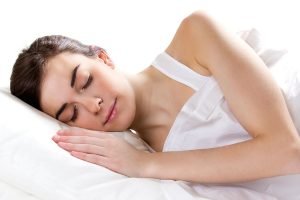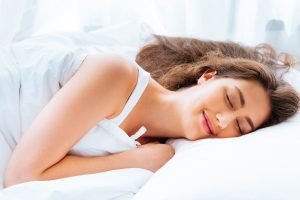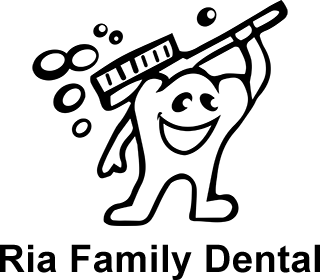Sleep Study
 Sleep study and treatment of patients with sleep disorders in Yeronga.
Sleep study and treatment of patients with sleep disorders in Yeronga.
If your doctor recommends you undergo a sleep study, or polysomnography, you may be wondering what is associated with this test and what you can expect.
Sleep studies aid doctors in diagnosing sleep disorders such as sleep apnoea, periodic limb movement disorder, narcolepsy, restless legs syndrome, insomnia, and other nighttime behaviours like sleepwalking and REM sleep behaviour disorder.
These disorders cannot be identified with a regular office visit—your doctor needs to gather more conclusive evidence while you are sleeping.
A sleep study is a non-invasive, overnight test during which doctors monitor you while sleeping to see your brain and body activities.
For this exam, you go to a sleep laboratory that is set up for overnight stays—usually in a hospital or sleep centre.
While you sleep, an electroencephalogram (EEG) monitors your sleep stages and the cycles of REM (random/rapid eye movement) and nonREM or NREM sleep you go through during the night, to identify possible disturbances in your sleep pattern.
A sleep study will measure things such as eye movements, oxygen levels in your blood, heart and breathing rates, snoring, and other movements of the body.
Preparation
You may be advised to avoid alcohol, caffeinated drinks, or food during the afternoon and evening before the sleep study.
Alcohol and caffeine can change sleep patterns and may worsen the symptoms of some sleep disorders.
Napping in the afternoon before a sleep study is not recommended. You will be asked to bathe before your sleep study examination.
But don’t put on any lotions, gels, colognes, or makeup before the test, as these can impede with the use of the electrodes.
The Sleep Study Examination Procedure
A sleep study is conducted in a room that is comfortable and dark for sleeping. You’ll be asked to arrive at least two hours before sleeping.
You can bring personal items related to sleep, and you can even sleep in your pajamas.
Before sleeping in the exam room, a technologist will place sensors on your head and body, but you can still move and get comfortable.
The technologists monitor you throughout the night and can assist you if you need to use the bathroom. Many people are curious about how they’ll be able to sleep under these conditions.
Don’t worry about this—a full night of sleep is not necessary to gather useful information from your sleep study.
A technologist will usually take the data from your sleep study, and later it will be assessed by a board-certified sleep specialist.
This may take up to two weeks when you’ll schedule a follow-up to discuss the results.
Results and Diagnosis
 A sleep technologist will first score your sleep study by marking your sleep stages and identifying any occasions of abnormal breathing or leg movement.
A sleep technologist will first score your sleep study by marking your sleep stages and identifying any occasions of abnormal breathing or leg movement.
Your doctor will then review the results to determine what kind of sleep problem you may have.
After your doctor makes his/her diagnosis, he/she will contact you to discuss the results.
Treatments and Therapy for Sleep Disorder
CPAP Titration Study
This is used to calibrate your CPAP (Continuous Positive Airway Pressure) device. If you are diagnosed with obstructive sleep apnoea you will need a CPAP study before you can begin treatment.
CPAP
Continuous positive airway pressure is the leading treatment for obstructive sleep apnoea. CPAP holds your airway open by providing a gentle stream of air through a mask you wear while sleeping.
Oral appliance therapy
This treatment for snoring and sleep apnoea involves wearing a removable oral appliance in your mouth as you sleep. This is best for patients who cannot endure CPAP.
Surgery
The board-certified sleep specialist may suggest surgery for patients who cannot tolerate CPAP or an oral appliance. This operation is not as effective as the other sleep apnoea treatments.
Melatonin
Melatonin is a hormone that is regularly used as a supplement for sleep. It is commonly available in most drugstores and nutrition retailers in a pill form. Melatonin is most effective in dealing with circadian rhythm disorders.
Cognitive Behavioral Therapy
Cognitive behavioural therapy is a type of treatment that addresses the underlying thoughts and behaviours that keep you from sleeping well.
This treatment is shown to be the most effective way to treat insomnia in the long-term.
Sleep Medications
Sleeping medications such as sleeping pills are used to reduce or temporarily treat sleep-related problems such as insomnia.
These medications are safe when taken in the short-term, under the supervision of a board-certified sleep physician.
Bright Light Therapy
Bright light therapy uses artificial light to reset circadian rhythms and treat problems such as jet lag, shift work disorder, or seasonal affective disorder.
Sleep Study in Yeronga
Ria Family Dental offers comfortable and effective care for patients with sleep disorders in Yeronga and the surrounding areas.
We can help you cope with your sleep disorders with treatments and therapy that are safe and non-invasive.
Yeronga dentist serves local communities in Yeerongpilly, Annerley, Tarragindi, Rocklea, Fairfield, Tennyson, Graceville, Chelmer, and Moorooka.
Sleep Study in Yeronga
#1. Book online now
#2. Call 0451 359 356
#3. Visit us at 451 Fairfield Rd in Yeronga

